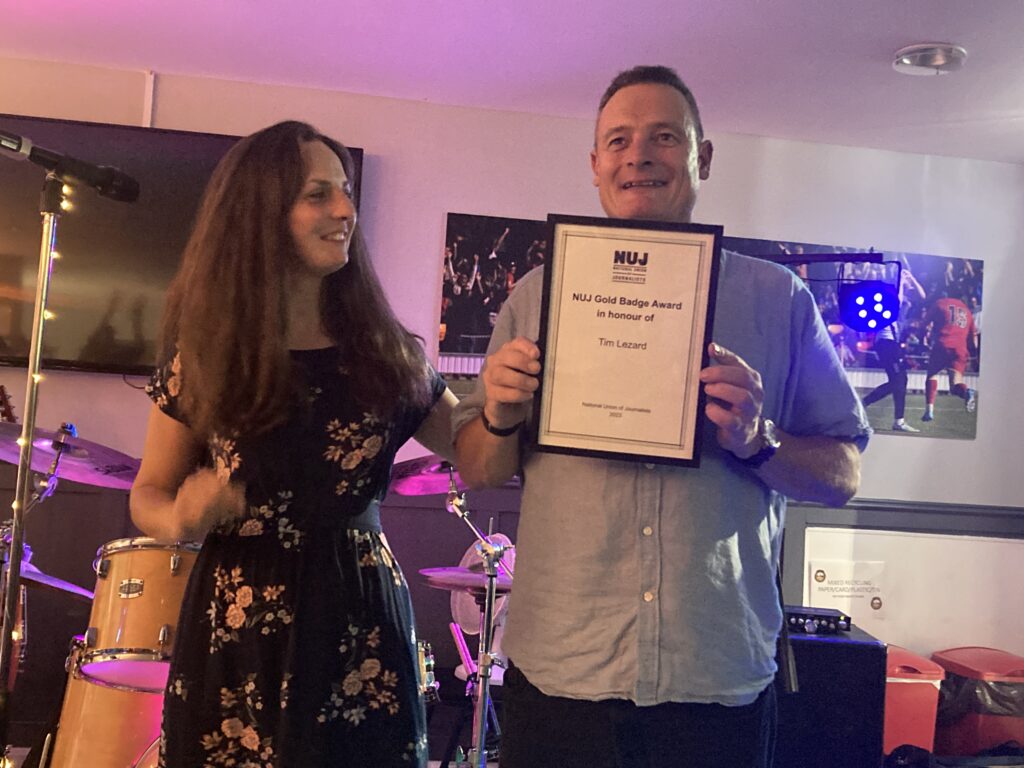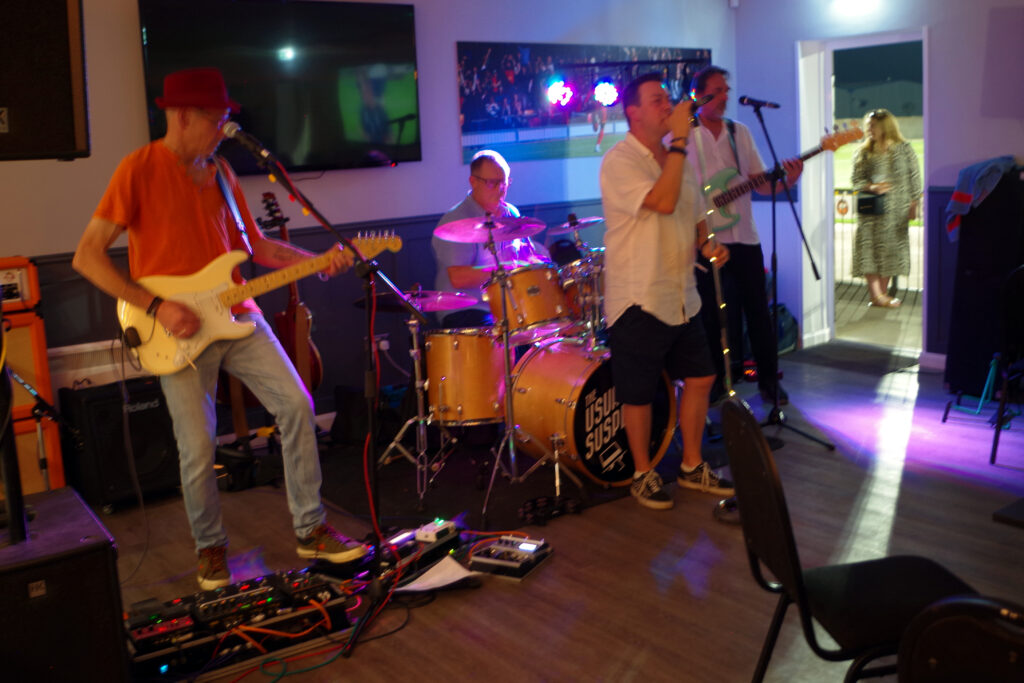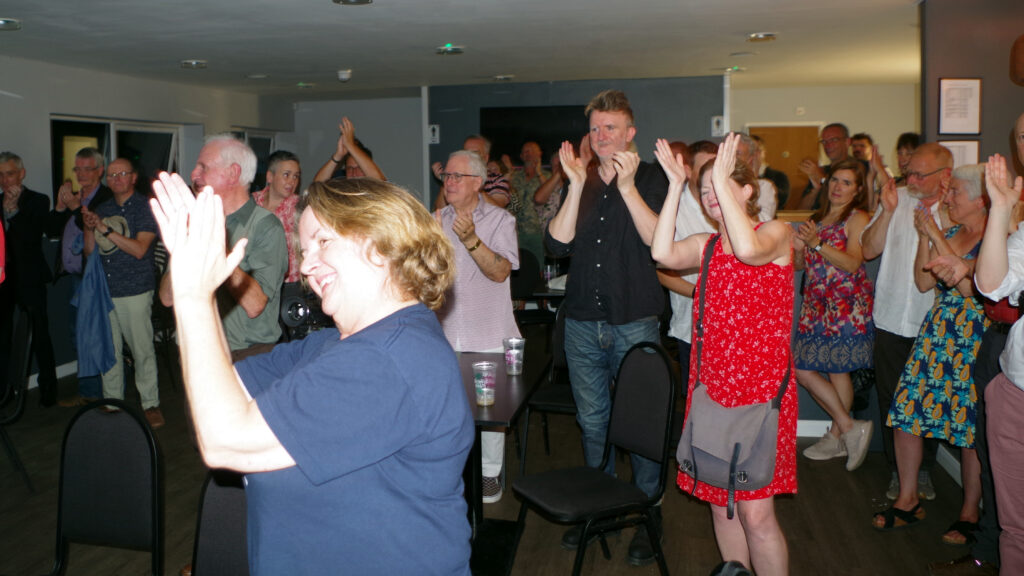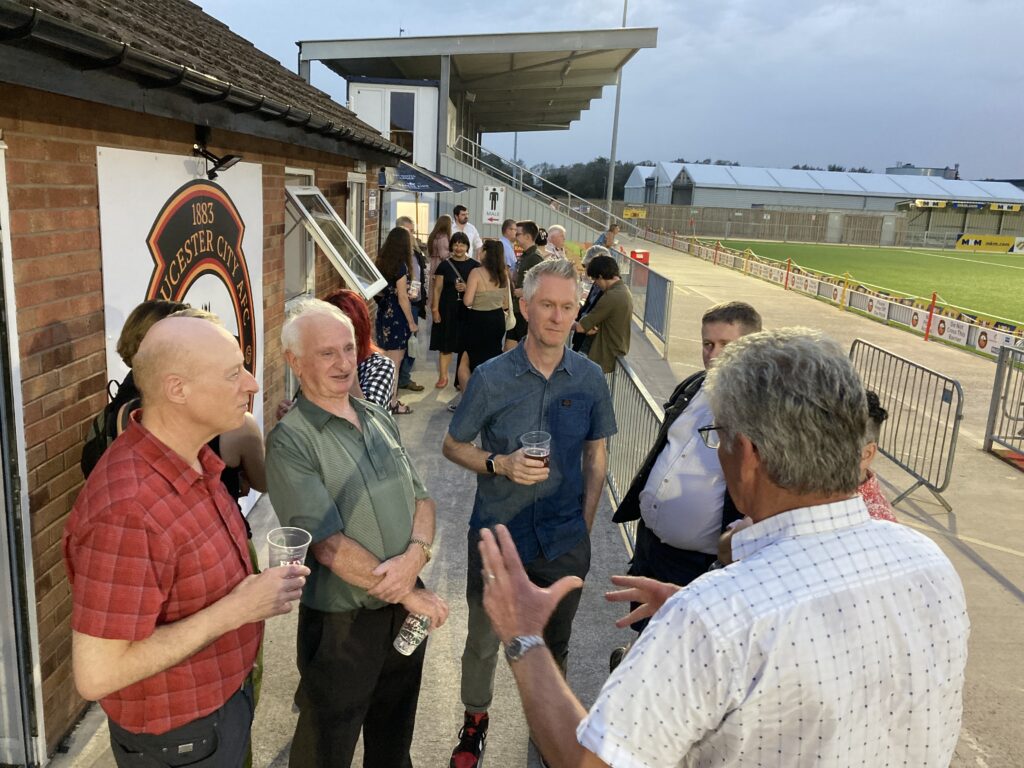
THE FIRST regional event held by the South West England branch of the NUJ in Gloucester was a packed-out success.
The excuse was to mark the presentation of a gold medal, one of the union’s highest awards, to its popular and long-serving NEC member for the region, Tim Lezard.
Tim invited some of his many NUJ friends from across the country to join members from Gloucestershire and others from elsewhere in the South West to an evening of music, food and merriment at his the ground of his beloved local football club, Gloucester City AFC.
There were speeches but they were mercifully short, with contributions from branch chair James Garrett and new SW NEC member Paul Breeden, explaining the ambitions of the new regional branch.
Guest of honour was union president Natasha Hirst, who paid tribute to Tim Lezard’s 20-plus years as the representative of the South West on the union’s National Executive Council. She hailed him as an inspiration to generations of union activists and a popular choice as a former president of the union (the post is awarded for two-year stints between the national conferences, or Delegate Meetings).
Natasha praised Tim for, among many other achievements, helping to set up an journalists’ union in Ukraine.
“You bring so many people together, you have been able to create some long lasting changes,” she said referring to Tim’s idea of a conscience clause for journalists, now enshrined in the union’s Code of Conduct.
In his speech, Tim revelled in the grudging acceptance of the conscience clause by no less a figure than Rupert Murdoch at the Levison inquiry. He entertained with tales from his career, including his first day on the Dursley Gazette, when he contrived to make himself front page news by offering a lift to a teenager and inadvertently sparking a police manhunt. Other trademark Lezard incidents included kicking a member under the table during a disciplinary meeting, intending to stop him digging himself into a hole, to no effect, only to find out later that the member thought Tim had a twitchy leg …
He reminded members how much the industry has lost in the past 30 years – half a dozen staff in a Dursley office which now no longer even exists, and the scores of staff at the Western Daily Press reduced to a handful.
When he was union president, he said, he coined the phrase for the Journalism Matters campaign: Who will ask the questions when we are gone? Twenty years on, he said, we know the answer – no one.
He reminisced about appearing on stage with Billy Bragg, Tony Benn, Noam Chomsky, Mick Jones and Jerry Dammers, reporting from the Orange Revolution in Kiev, and included an anecdote about Jeffrey Archer pretending to be phoning the prime minister while the real PM – Margaret Thatcher – was live on TV. He also enjoyed encounters with Anne Widdecombe and Iain Duncan Smith.

While leafleting at the Herald in Plymouth he played hide and seek with security guards who didn’t want union leaflets handed out; doing a similar thing at the Daily Mail, he accidentally handed one to Viscount Rothermere.
He also recounted years of campaigning against the far right, which earned him several death threats – one very easy to deal with as the caller forgot to withhold his phone number and was traced by the police – and revelled in the silly names he has been called from “crypto-Marxist” to his favourite, “one of of Searchlight’s leading arsewipes”.
And in a demonstration of the futility of bosses trying to ignore their staff, he recalled being hauled to an editor’s office after a manegerially-unappreciated union meeting and being told, “You don’t represent anyone, we don’t have an agreement here.” To which Tim responded, “Why are you talking to me then?”
“Journalism is about being a voice for the voiceless, about holding the powerful to account, and trade unions do the same in our workplaces,” he said, ending with some valuable advice:
“Remember three things – there is power in a union, never cross a picket line, and fuck the fascists!”

